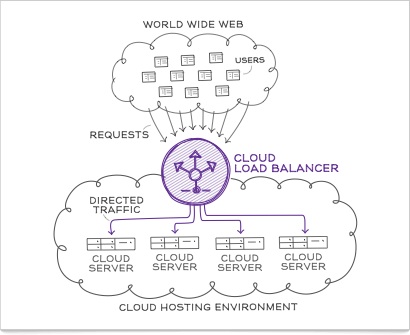Upon walking into a business or home office, you might notice a key component that appears to be going extinct before our very eyes. That piece is the office filing cabinet. It’s being replaced by new technologies that make it easier for us to store files and data in places that can be accessed easier. Digital storage is the new filing cabinet, and it takes up a lot less space in the office than a clunky metal filing cabinet.
Digital storage comes in many forms. It includes physical storage devices, such as external hard drives and USB flash drives. It also includes the larger physical servers. But is also includes virtual servers and cloud storage found with cloud computing. With so many digital storage options, it can be difficult to choose which one to use. To determine where to store your files, it’s best to start with how you need to access them. Will multiple people be accessing the files in the same location? Or will it be a single person accessing the files from multiple locations? What about multiple people in multiple locations or a single person from a single location?
 In many instances, cloud storage is the best digital storage option. What is unique about cloud storage is that the files stored on the cloud can be access from virtually anywhere. All you need is a computer with an Internet connection to connect to the cloud and access your files. This makes it easy for people to access files from different locations. Plus, no one has to worry about losing the storage device since it’s virtual. Additionally, uninterrupted uptime is practically guaranteed due to the design of the cloud. Choosing your provider carefully can save you time and money, too. Cloud computing company Rackspace has a reputation for uptime and great customer service.
In many instances, cloud storage is the best digital storage option. What is unique about cloud storage is that the files stored on the cloud can be access from virtually anywhere. All you need is a computer with an Internet connection to connect to the cloud and access your files. This makes it easy for people to access files from different locations. Plus, no one has to worry about losing the storage device since it’s virtual. Additionally, uninterrupted uptime is practically guaranteed due to the design of the cloud. Choosing your provider carefully can save you time and money, too. Cloud computing company Rackspace has a reputation for uptime and great customer service.
Cloud storage also offer an infinite amount of storage space, as long as you are willing to pay for it. Generally cloud storage cost is based on the amount of space used. This means that if you delete a bunch of files this month that you cost may be lower than the previous month, due to using less space on the cloud. The cost for cloud storage varies, but is usually charged on a monthly usage basis.
Flash drives offer the smallest physical storage device for digital files. These USB devices can often be slipped into a pocket or onto a key chain for transport. The obvious disadvantage of a flash drive is that it can be lost or damaged. An external hard drive is similar to the flash drive, except that it is larger in size. However, some are small enough to fit inside a jacket pocket. Generally an external hard drive has quite a bit more storage space available than a flash drive, which is the benefit of upgrading to it over a flash drive. Both the flash drive and external hard drive only have a one-time user cost.
Local servers offer an even larger physical storage device option with a one-time purchase cost. Such devices are often used by companies who want to store files in a central location so that any employee connected to the server can access the files. This is the closest local alternative to cloud storage. The benefit of a local server is that it’s on-site and secured on the premises. Of course, this means the additional cost of on-site staff to maintain the server. Additionally, if the server goes down, then the business is responsible for getting it back up and working again. This differs from cloud storage, where maintenance is included in the monthly cost.
There is no “best” digital storage option, as it varies based on individual need. Determining your file storage needs can help you pick the best place to store all of your digital files.
* * *
“Cloud Computing” image courtesy of Shutterstock.
“Cloud Hosting” image courtesy of Rackspace.



GIPHY App Key not set. Please check settings